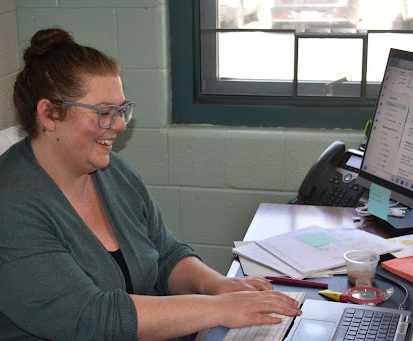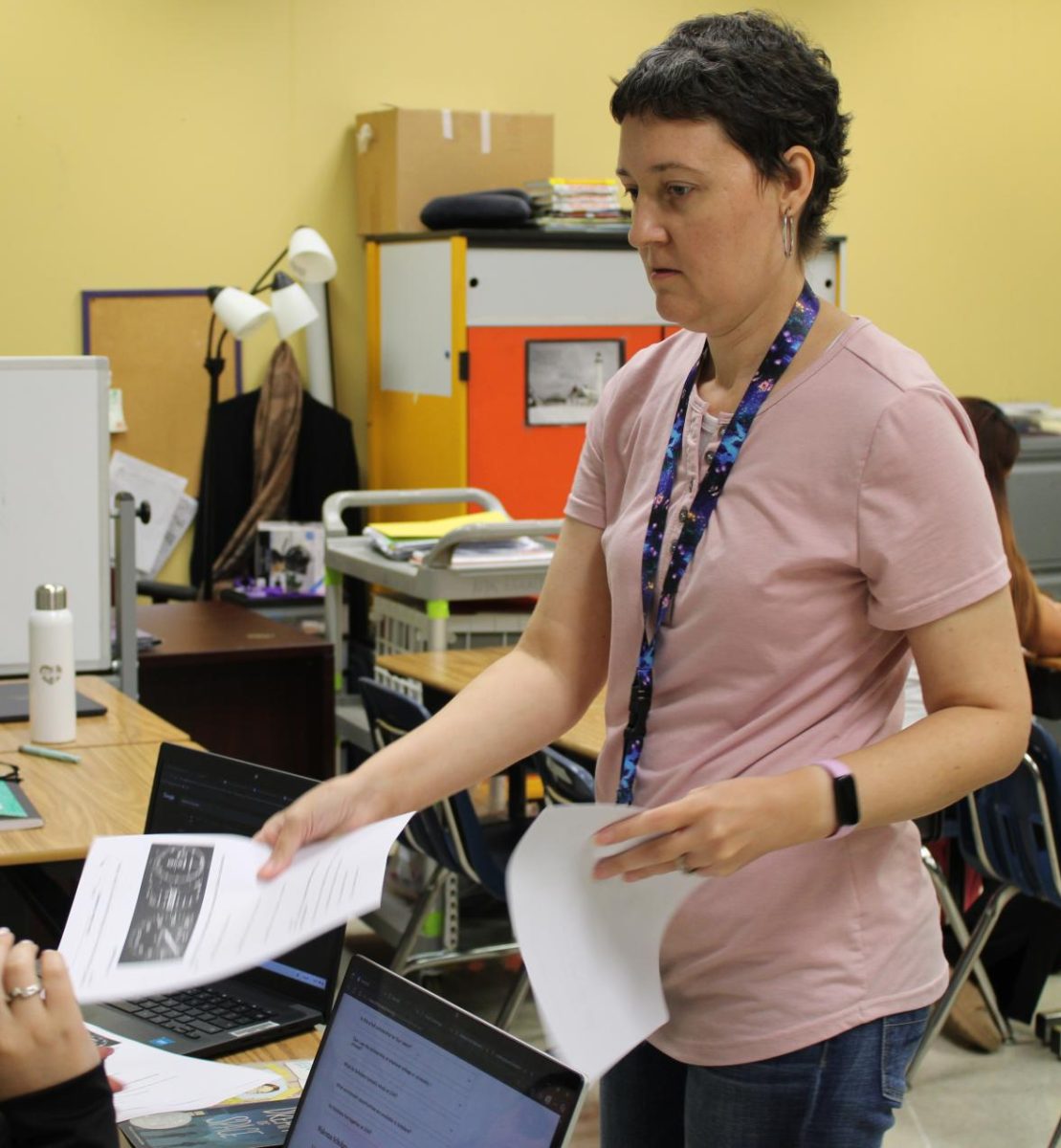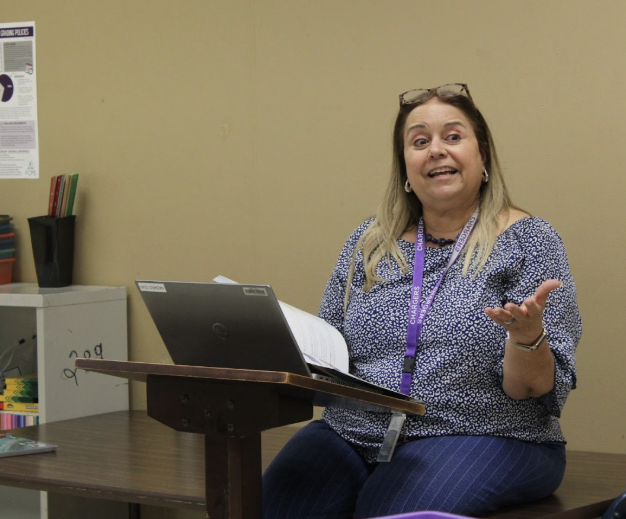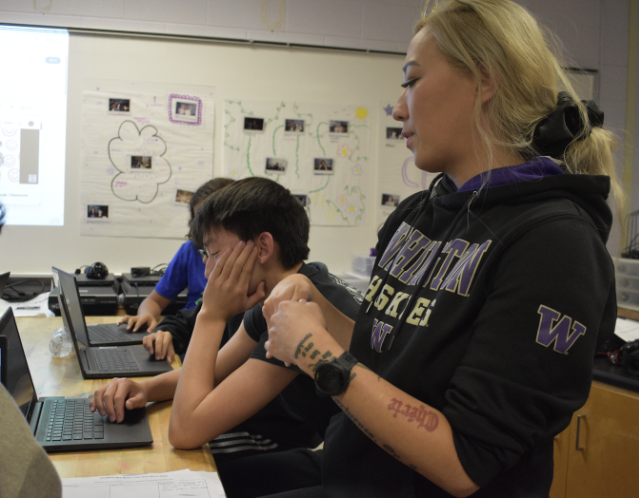In the whirlwind that is student life, stress is typically a silent issue, impacting students’ mental and physical well-being. During Stress Awareness Month in April, increasing alertness during this month shows light on the pressures students face. According to the American Institute of Stress, 65% of people aged 15-29 have the highest stress levels.
“The stress levels when I was transitioning from middle school to high school was honestly very unexpected and it was a lot to handle at first,” freshman Taniya Rajjohn said. “The workload was a lot more and I wasn’t sure how to manage all of it.”
According to the National Institutes of Health, handling stress is important for preserving a healthy way of living. Many people try to push off the stress by using methods to provide temporary relief. Procrastination is a common way people avoid their tasks, but it only leads to greater stress in the future due to unfinished responsibilities. This method can lead to cycles causing one to constantly put assignments to the last minute leading to a panicked rush to complete them.
“I tend to procrastinate a lot when it comes to school, so when it gets too stressful I’ll try my best to calm myself down,” Rajjohn said. “I usually take warm showers and call my friends to decrease stress.”
According to WebMD, a common result of excessive stress, whether it’s mental, physical or emotional, is burnout. Overload burnout tends to be the most common among students and occurs when people work too hard, to the point where they’d rather put their personal life at risk to feel successful. For example, spending all of one’s time focused on studies risks mental health challenges and social life for the pursuit of academic success.
“In school, it’s always so hard not to feel like you’re constantly running,” freshman Eurie Kim said. “It’s almost like I’m burnt out to a point where I don’t even realize it. Every time I finish a test there’s always a new one the next day so there’s no time to rest.”
Reduced performance, for example, decreased productivity and grades, is one of the symptoms of being burnt out. Additionally, caring for family members and relationships becomes difficult since it’s harder to concentrate and handle responsibilities when stressed.
“Earlier this year, I was stressed over college applications and acceptances which made it hard to focus on other things,” senior Kory Beene said. “It can be tiring trying to manage to get everything in on time with school and being able to make time for relationships, and not forgetting to make time for my friends.”
According to the American Academy of Child and Adolescent Psychiatry, healthy techniques to manage stress include exercising and eating regularly, maintaining a good sleep routine, and decreasing negative self-talk by using more positive affirmations.
“I try to sleep early, rather than staying up late because when I’m more rested, I’m in a better mood to complete things, and overall feel more energetic,” Kim said.
When an individual is overwhelmed by tasks, it’s important to break them up, making it easier to complete them. According to Entrepreneur, one should prioritize their time and figure out which task is best to complete during a specific time. For example, when one has the most energy they should work on more challenging tasks, when the energy levels drop down, work on easier tasks. This method is more efficient than working when one is exhausted since it’s less time-consuming and is a more productive way of getting things done. 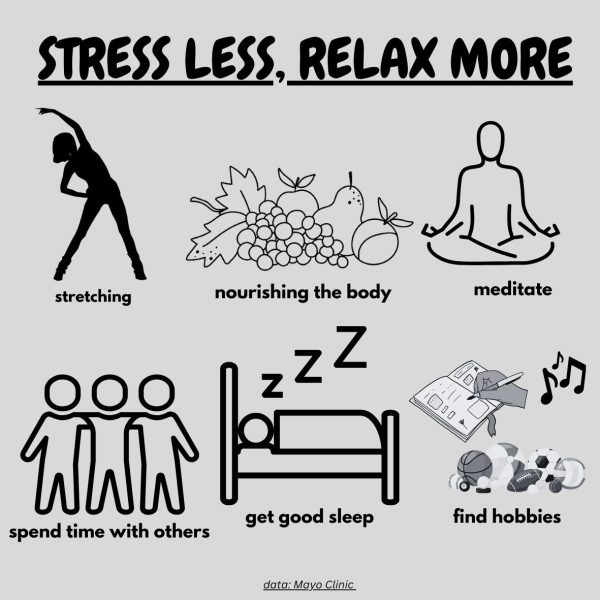
“I try to work on more difficult work at home since I feel more energized after school,” freshman Lou Arias said. “At school, I work on more simple tasks, so I’m still getting work done.”
According to the American Institute of Stress, when the situation is no longer perceived as dangerous, the mind changes into relaxation mode, resuming a normal heart and breathing rate. Experiencing a “relaxation response,” adolescents have decreased breathing and heart rate, giving a sense of well-being after breathing slower and relaxing the body. Furthermore, using other techniques for managing stress experience less helplessness and learn how to react to stressful situations.
“When it comes to handling all the stress I go through, I learned to take it step by step,” Rajjohn said. “Every time I get stressed, I try to distract myself from the situation so it doesn’t take over my head.”



